|
I'm honored and delighted to be giving a talk as part of the Los Angeles Public Library's West Valley Big Read focusing on Jen Wang's graphic novel, The Prince and the Dressmaker (the first book I ever reviewed here on KinderComics). Jen Wang is one of my favorite cartoonists, and The Prince and the Dressmaker one of my favorite books of the 2010s. In fact, I'd say it's one of my top ten graphic novels of the past half-decade. So doing this talk is a real treat! As the above flyer says, the talk is happening at the West Valley Regional Branch Library on Saturday, July 23, at 11:00 a.m. LAPL has more information about the talk here: https://www.lapl.org/whats-on/events/lets-talk-graphic-novels. Readers, I hope some of you will be able to make it — and please help spread the word!
0 Comments
Due to the pandemic, San Diego's Comic-Con International has become a virtual event, taking place this week. It started yesterday, Wednesday, July 22, and continues through this Sunday, July 26. This is Comic-Con@Home. Of greatest interest to me are the virtual "panels" spread over the five days of the event (reportedly more than 350 panels in all). These run the usual gamut of pop culture topics, some comics-focused, some not. Regrettably, the panels are entirely prerecorded, which means no live audience interaction, no Q&A. Most will be in the nature of recorded Zoom calls. This bums me out, but is better than nothing — and there are some very promising-sounding panels on offer. Below, divided by day, are panels that catch my eye or may be of particular interest to KinderComics readers. Note that not all of these panels focus on children's or young adult comics or on education. Some focus on other fannish interests of mine, or on particular creators of note. This is a glimpse into my mind! Obviously, Comic-Con@Home is already well underway; this post comes late. But many if not all of the panels listed below will be available to view online once this week is over. (CCI says that most of its panels "will also be available AFTER the July 22-26 dates, although there are some that may have a limited time period attached to them.") The panels can be accessed via CCI's online program or their YouTube channel. They can't be accessed before their official start times, but once they're up, they're up. There could be weeks and weeks of good viewing here! July 22, WednesdayThis first day continues the now-familiar Comics Conference for Educators and Librarians (CCEL), a Wednesday-afternoon tradition since 2016, co-sponsored by Comic-Con and the San Diego Public Library since 2016. All of Wednesday’s seventeen panels, AFAIK, are CCEL-branded, and all are aimed at librarians and/or teachers. Below are the Wednesday panels that really stood out to me; for info on all of the CCEL panels, follow the CCEL link above to the SD Public Library's page: Teaching and Learning with Comics 3:00pm – 4:00pm With Peter Carlson, Antero Garcia, and Susan Kirtley, co-editors of the anthology With Great Power Comes Great Pedagogy, and creator-teachers Nick Sousanis, Ebony Flowers, and David F. Walker and Brian Michael Bendis. (I’ve already watched this one, and it was terrific!) Comics in the Classroom Ask Me Anything: Pick the Brains of Teachers, Administrators, Creators, and Publishers 3:00pm – 4:00pm The Power of Teamwork in Kids Comics 5:00pm – 6:00pm Including Gene Luen Yang, Chad Sell, Jim Ottaviani and Maris Wicks, and moderator Betsy Gomez. New Kids Comics from Eisner Award Publishers 5:00pm – 6:00pm Including Jerry Craft, Faith Erin Hicks, Robin Ha, Derick Brooks, Jonathan Hill, and moderator Candice Mack Words and Pictures Working Together: Strategies for Analyzing Graphic Texts 6:00pm – 7:00pm Comic-Con Celebrates Fifteen Years of Eisner Librarians 6:00pm – 7:00pm Including librarians and former Eisner Award judges Kat Kan, Karen Green, Jason Poole, Dawn Rutherford, Traci Glass, and moderator John Shableski. July 23, ThursdayGraphix: Get Drawn In 11:00am – 12:00pm Batgirls! 12:00pm – 1:00pm Comics During Clampdown: Creativity in the Time of COVID 12:00pm – 1:00pm 75th Anniversary of Moomin appreciation 1:00pm – 2:00pm Comics Satire and The New Political Cartoon 2:00pm – 3:00pm The Brave New World of TwoMorrows 2:00pm – 3:00pm Comic-Con Museum: A Museum for All Ages 3:00pm – 4:00pm Teaching and Making Comics 6:00pm – 7:00pm Including Ebony Flowers, Roman Muradov, Trina Robbins, Sophie Yanow, and moderator James Sturm. July 24, FridayHoward Cruse: The Godfather of Queer Comics 10:00am – 11:00am Absolutely not to be missed IMO. Last Gasp: 50 Years of Publishing the Underground, Part I 10:00am – 11:00am Reclaiming Indigenous History and Culture Through Comics 11:00am – 12:00pm Decoding the Kirby/Lee Dynamic 11:00am – 12:00pm Raina and Robin in Conversation (starring Raina Telgemeier and Robin Ha) 11:00am – 12:00pm TragiComics 12:00pm – 1:00pm History Goes Graphic 12:00pm – 1:00pm Harryhausen100: Into the Ray Harryhausen Archive 1:00pm – 2:00pm Water, Earth, Fire, Air: Continuing the Avatar Legacy 3:00pm – 4:00pm The Annual Jack Kirby Tribute Panel 4:00pm – 5:00pm VIZ: A Haunting Conversation with Junji Ito 6:00pm – 7:00pm 32nd Annual Will Eisner Comic Industry Awards 7:00-8:00pm Another must for me! July 25, SaturdayLast Gasp: 50 Years of Publishing the Underground, Part II 10:00am – 11:00am The Guide: Overstreet's 50th Anniversary 10:00am – 11:00am Warner Archive's Secret Origins of Saturday Morning Cartoons 11:00am – 12:00pm Inspired: Personal Stories in Graphic Novels 12:00pm – 1:00pm Diversity and Comics: Why Inclusion and Visibility Matter 12:00pm – 1:00pm Personal, Political, Fictional, and Factual 1:00pm – 2:00pm Latinx & Native American Storytellers 1:00pm – 2:00pm Tribute to Dennis O'Neil: Beyond Batman 2:00pm – 3:00pm Gender, Race, and Comic Book Coloring 2:00pm – 3:00pm Mexico's Magnificent Stop-Motion Seven 3:00pm – 4:00pm Best and Worst Manga of 2020 4:00pm – 5:00pm 20 Years of DeviantArt: An Oral History 4:00pm – 5:00pm Adrian Tomine spotlight panel 5:00pm – 6:00pm Comic Shops : Persevering through Crisis 5:00pm – 6:00pm Mexican Lucha Libre: History, Tradition, Legacy 6:00pm – 7:00pm Fantagraphics and IDW: Classic Comics Reprints 6:00pm – 7:00pm Out in Comics 33: Virtually Yours 6:00pm – 7:00pm July 26, SundayBOOM! Studios: Discover Yours
11:00am – 12:00pm Jack Kirby 101: An Introduction 12:00pm – 1:00pm Masters of Style: Woodring, Fleener, Muradov and Hernandez 1:00pm – 2:00pm Comics about Motherhood and Reproductive Choice Including Lisa Wool-rim Sjoblom, Leslie Stein, Teresa Wong, and moderator Hillary Chute. 2:00pm – 3:00pm Another must! Inspired by Real Life: The True Stories Behind Graphic Novels 2:00pm – 3:00pm LGBTQ Comics and Popular Media for Young People 2:00pm - 3:00pm Comic Arts LA (CALA), the annual festival for independent comics lovers here in Los Angeles, is coming this Saturday and Sunday, Dec. 7th and 8th, from 10am to 5pm each day. This will be the sixth CALA, and the sixth I have attended. I wouldn't miss it: it's a wonderful event for anyone who cares about the makers' culture that is independent comics! CALA will once again be held at: Homenetmen Ararat (Elevate Fitness Complex), 3000 Dolores St. Los Angeles 90065 (This is in the vicinity of the Atwater Village neighborhood in Glendale.) Further information about the venue, travel options, and parking can be found on the CALA website under Location. What is CALA, exactly? I'm going to say just about exactly what I said last year: Organized by Jen Wang, Angie Wang, and Jake Mumm, CALA is a free, public, welcoming event that aims to promote (as its website says) "the appreciation of comics, graphic novels, and sequential arts among the broader Los Angeles public." It's friendly, inclusive, and diverse: a space that offers you a chance to interact with great artists whose work will be defining comics for years to come. If you're interested in comics as an art form, not just a source of IP to be mined for other media, then CALA is your kind of happening. It's one of Los Angeles's signal events for independent publishing and art-making. As I say each year, CALA always teaches me new things and helps me discover new artists to watch out for. This year's lineup is strong as usual: special guest artist Raúl The Third (Lowriders in Space; ¡Vamos! Let’s Go to The Market!); exhibiting artists such as Jessica Campbell, Ezra Claytan Daniels, Charles Glaubitz, Laura Knetzger, Sloane Leong, Ben Nadler, Anders Nilsen, Lark Pien, Rosemary Valero-O'Connell, Malachi Ward, and so many others; and publishers such as Czap Books, Iron Circus, and Youth in Decline. And who knows what other creators, publishers, and art communities that I haven't learned about yet? Plus, once again CALA is sponsoring this wonderful thing: Please bring books to give!
Tuesday night’s conversation between Lynda Barry and Chris Ware (at the Aratani Theater in downtown Los Angeles, organized by Skylight Books) touched on childhood again and again. Both artists shared pictures or artifacts from their childhoods and recounted formative childhood experiences: Ware recalled a life-changing friendship he had as a young boy with another introverted, comics-loving schoolboy, memories of which continue to fuel his work (particularly his new graphic novel, Rusty Brown). Barry expressed her delight at working with four-year-old artists as well as university students, and evoked her girlhood experience of watching a troubled young uncle draw obsessively (a story movingly told in her new book, Making Comics). Both artists stressed honesty and spontaneity over scripting or planning, and invoked the unselfconscious narrative drawing of children as an inspiration. Barry, animated, disarming, and often hilarious (as ever), showed photos and videos of young kids drawing and learning, her comments suggesting an almost Wordsworthian romantic regard for children’s untrammeled creativity (though mixed with a matter-of-fact acceptance of the terrors that kids’ stories so often uncover). Ware, woefully self-deprecating (as usual) but also articulate and funny (as usual), spoke of memory, of reinhabiting remembered spaces and using comics to move through recollected time. It was one hell of a chat. Ware began his comments by recalling how Barry inspired him, early on. He was clearly in awe of Barry and delighted by her irrepressibility. Barry readily drew him (and the audience) out, and into deep conversation. Aesthetically, the two artists would seem an odd match, and frankly I think their works differ fundamentally despite the mutual admiration they projected during their talk, but as a conversational tag team they were delightful. The evening gave me a lot to think about—most of all comics’ debt to memory and the mysteries of narrative drawing. (I only regret that we couldn’t spend hours hanging around afterward, sharing our impressions of the talk with some of the many fans and artists there--a big and enthusiastic crowd. I think there were several people in the audience that I know, but we couldn’t seek them out, as the night was wearing on and we had an early morning to get ready for.) Though Ware’s comments about spontaneity in writing and drawing resonated with Barry’s, I confess I don’t see him working in anything like the same vein. He says that these days he works from page to page, instinctively, without script, but some architectonic notion of form still seems to guide him, and his work remains compulsively crafted in ways that veer far from what Barry celebrates in Making Comics. Indeed, Ware invoked as points of reference, or aspirational guides, such designing literary figures as Joyce and Nabokov, and expressed his admiration for big books that “sprawl” (but that also, I would add, impose global structure through myriad devices). His comments revealed how Rusty Brown is deliberately shaped with an overall sense of form: at one point he likened his new book’s structure to that of a water molecule, or a snowflake forming, and explained how the book’s removable jacket, which charts or anticipates the various narratives contained within, would be complemented by another such jacket when, years from now, he completes the novel’s anticipated second volume (!). So, he is already thinking about design conceits that will contain and contextualize whatever he comes up with. In light of comments like these, I take Ware’s comments about spontaneous invention with the proverbial grain of salt—I don’t think his meticulously crafted surfaces jibe with Barry’s ethos of unlocking creativity through drawing-as-process. I also think that Barry’s theorizing about narrative drawing (“There was a time when drawing and writing were not separated for you”) is really onto something, whereas Ware’s theories about narrative drawing often seem belied by the nature of his own work. For example, when Ware says that the functionality of a drawing matters more than its beauty or polish, I don’t see that borne out by his (often gorgeous, always pristine) pages, and I know many readers fetishize Ware's craft. Yet when Barry says similar things, I see a clear connection between her theory and her pedagogical practice (though I find her pages just as beautiful, in a much different way). In general, I tend to take Ware’s theoretical positions as somewhat at odds with what I see in his work, but Barry, I think, has truly embraced a romantic position about cartooning as demotic and open to all (“You don’t have to have any artistic skill to do this. You just need to be brave and sincere”). The obvious contrast between their respective styles of work, however, did not stop them from finding points to share and admire. Again, Ware seemed grateful to be sharing a stage with Barry, and, I thought, caught some of her energy, while Barry was, in effect, a gracious and delightful host. Despite the manifest differences between their work, I was fascinated to see both of them harking back to childhood as a wellspring of inspiration. They did this in different ways, of course. When asked by an audience member what they would say to their childhood selves if they could go back in time, they had very different answers: Barry said she would assure her younger self that it would all work out fine, that the struggles would definitely turn out to be “worth it." Ware, on the other hand, said he didn’t think he could reassure his younger self because, essentially, his work feeds on sad and anxious memories—that is, reassurance would take away the impetus or subject matter of much of his art. That right there speaks volumes, I think, about their differences in temperament and focus. PS. I’ve been reading Barry’s Making Comics with great interest and hope to review it here. It’s an extraordinary book, one that will influence my teaching going forward (as indeed some of Barry’s previous books already have). This is turning out to be an incredible season for new comics releases!
Comic Arts LA (CALA), the annual festival for independent comics lovers here in Los Angeles, is coming this Saturday and Sunday, Dec. 8th and 9th, from 10am to 5pm each. This will be the fifth CALA ever, and the fifth that I have attended. I wouldn't miss it! CALA will be held at: Homenetmen Ararat (Elevate Fitness Complex), 3000 Dolores St. Los Angeles 90065 (This is in the Atwater Village neighborhood of Glendale.) Further information about the venue, travel options, and parking can be found on the CALA website under Location. CALA, organized by Jen Wang, Angie Wang, and Jake Mumm, is a free, public event that aims to promote (as its website says) "the appreciation of comics, graphic novels, and sequential arts among the broader Los Angeles public." It's WONDERFUL: a friendly, inclusive, diverse space that offers you a chance to interact with great artists whose work will be defining comics for years to come. I always go to CALA. If you're interested in comics as an art form — not comics-based movies or other media, but comics purely as an artistic and literary form, as an expressive outlet, and as a culture of makers — then CALA will be right up your alley. I always get "schooled" at CALA (and I've been studying comics for a good part of my life). It's one of Los Angeles's great events for independent publishing and art-making. This year's lineup is super-strong: special guest artist Ronald Wimberly, panelists Nalo Hopkinson and Rachelle Cruz, panelists/exhibitors like Yumi Sakugawa, Richie Pope, Julia Kaye, and Molly Knox Ostertag (and many more), plus exhibitors like Robert Goodin, MariNaomi, Sophie Yanow, Malachi Ward, Czap Books, Youth in Decline, and the Center for Cartoon Studies (and, oh, about a hundred others). And who knows what artists unknown to me I'm going to learn about this time? Plus: CALA is doing this once again, which is awesome: This Friday: KinderComics's favorites of 2018!
On Thursday evening, March 15, my wife Mich and I were fortunate to attend a smart, intimate, charmingly informal panel discussion at Chevalier’s Books with Jen Wang (The Prince and the Dressmaker, In Real Life), Cory Doctorow (In Real Life, Little Brother), Molly Knox Ostertag (The Witch Boy, Strong Female Protagonist), and Tillie Walden (Spinning, On a Sunbeam). Wow, what a lineup! Chevalier’s, in L.A.’s Larchmont Village, has been open since 1940, making it the oldest independent bookshop in Los Angeles. We had never been there before—but I expect that we’ll be back! Nice shop, cool space, and welcoming, with real personality and what appeared to be carefully chosen stock (the graphic novel buyer seems to have a definite POV). We arrived a few minutes late to the discussion, which took place in the children’s alcove, surrounded by books. A few rows of wooden chairs had been set up for the audience, but the space was fairly tight and the crowd small, maybe a double handful of people. Jen Wang served as emcee of sorts, sometimes referring to her phone for questions but mostly letting the conversation float along in an easy, unforced way. Yet the conversation was rich in information and insight, and covered a lot of ground: from writers’ habits (with Doctorow marveling at Anthony Trollope’s famed productivity and self-discipline), to artistic inspirations (movies, immersive theater, theme park rides, music), to elements of craft (layout; scripting versus improvising; research). The speakers were at times disarmingly honest: Wang confessed that there are times she prefers not to draw, especially when she has recently finished a project as big as The Prince and the Dressmaker. Walden confessed that the response to her memoir, Spinning, has caught her up in its own momentum in ways that impinge on her current work. Ostertag likewise admitted that she worries about the success of one book making her too self-conscious or eager to please in her future work. Walden admitted how tough it could be to field difficult, sometimes heartrending, questions and stories from young readers, especially queer readers in search of advice and assurance (she mentioned that writing a memoir seemed to open her to this kind of response). Doctorow revealed how his fiction-writing is often fueled by anger over political events, and his need to free his social media use from the constant pressure to respond to provoking political news. All showed a keen interest in each other’s work and in sharing process (Ostertag, initially somewhat reserved, seemed to open up when discussing Wang’s new book!). I loved the way the discussion wandered through big issues of audience, genre, and the depiction of sexuality and gender identity, to minute nuts ‘n’ bolts issues of page design and drawing (comics nerd moments: I just eat those up). All four creators gave me a sense of being extraordinarily busy and productive—every one of them has new irons in the fire, new books forthcoming, and so on. They got on well, unsurprisingly, with a nice collegial vibe (there were jokes about everyone now being in the First Second family, so to speak). In sum, an amazing panel—and so chill and easygoing, for such an amazing gathering of talents. After the panel, we chatted, then Mich and I bought some books and got ’em signed. I talked up this blog a bit, and informed Molly Ostertag and Tillie Walden that they had been nominated for Excellence in Graphic Literature Awards earlier that same day (they hadn’t heard!). I spoke with Jen Wang and (I think) Jake Mumm about the splendid CALA festival that they help to put on every year. A delightful experience—then I read Ostertag’s The Witch Boy when I got home (because man was I overdue). Thanks to Chevalier’s for hosting such a strong comics event!
WOW. No sooner do I finish reviewing Jen Wang's splendid new graphic novel, The Prince and the Dressmaker, than I realize that Wang and a panel of other great talents will be discussing the book at Chevalier's Books, Los Angeles's fabled independent bookstore, tomorrow night, Thursday, March 15, at 7:00pm. The details are at Chevalier's site, here (Chevalier's is at 126 North Larchmont Blvd., Los Angeles, CA 90004). Wang, author of Koko Be Good (2010), co-author, with Cory Doctorow, of In Real Life (2014), and co-founder of the Comic Arts LA festival, will be joined by Doctorow, as well as two other notable comics creators, Molly Knox Ostertag and Tillie Walden. Doctorow is of course a novelist (author of Little Brother among others), columnist, tech expert and activist, and the co-editor of Boing Boing. Ostertag is the author of the recent graphic novel The Witch Boy (whose exploration of gender resonates with The Prince and the Dressmaker), co-creator of the graphic novel Shattered Warrior, and co-creator of the ongoing webcomic Strong Female Protagonist. Walden is author of the recent graphic memoir Spinning (one of 2017's most acclaimed comics) and the webcomic (soon to be graphic novel) On a Sunbeam, as well as the graphic books The End of Summer, I Love This Part, and A City Inside. This is an incredible gathering of talent. Frankly, it would be hard to imagine a stronger panel than this when it comes to the intersection of children's publishing and graphic novels, small-press and independent comics, women comics creators, and explorations of gender and sexuality in comics. I dearly hope to make this event, which I expect is going to be great!
|
Archives
June 2024
|

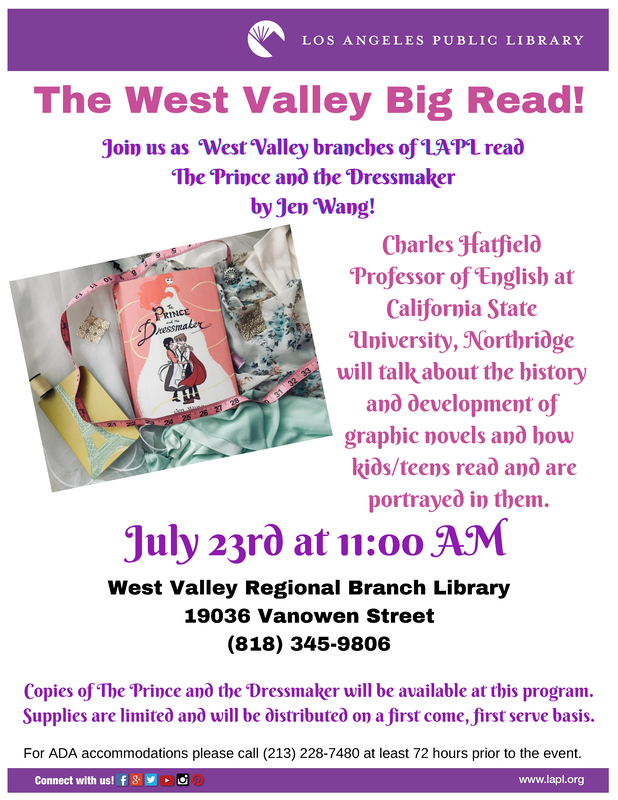
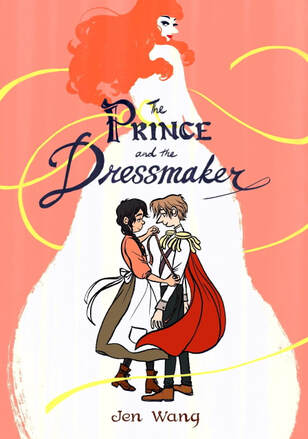
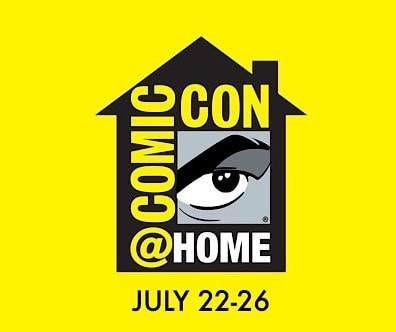

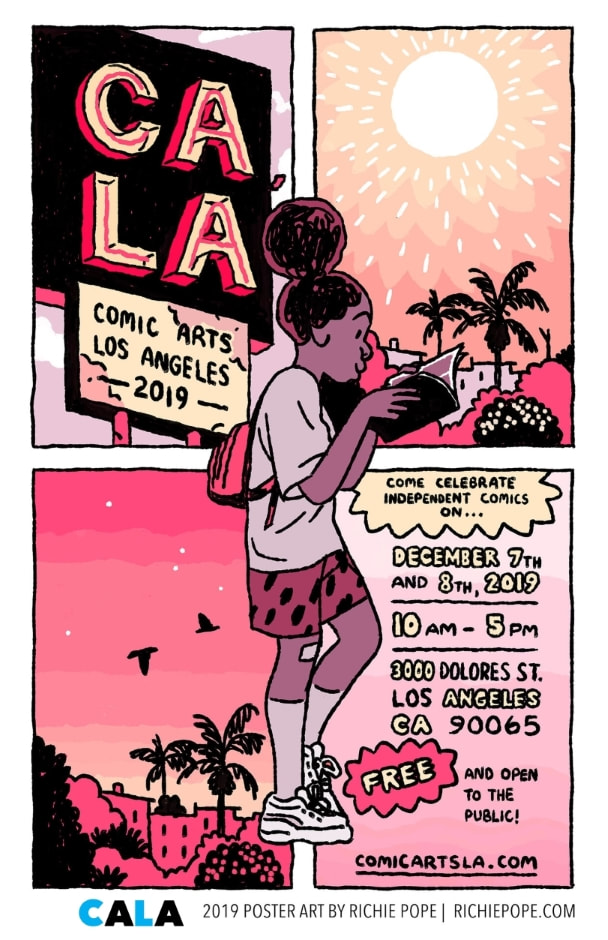
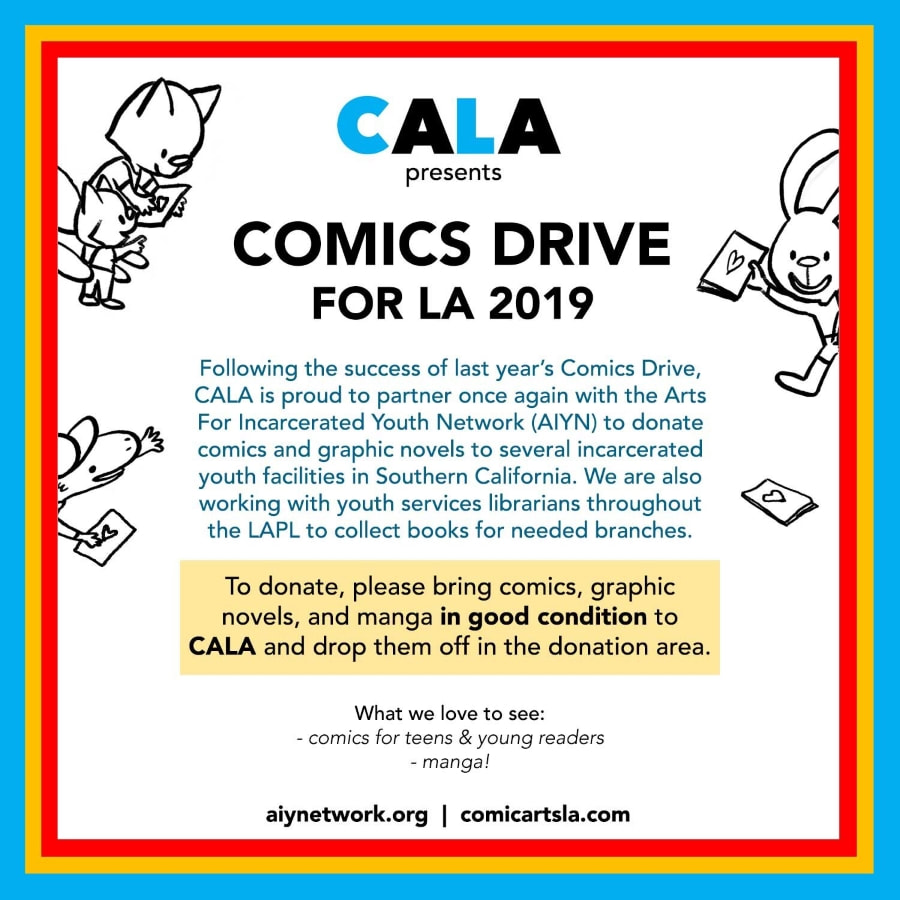
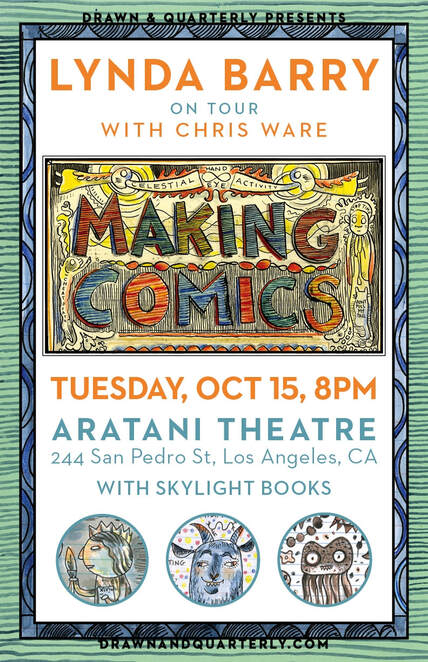
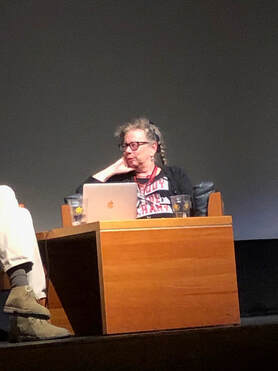
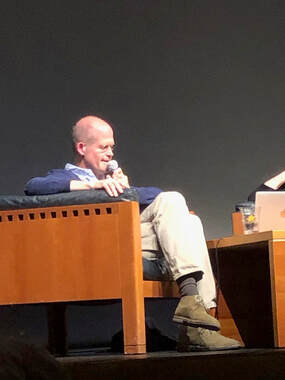
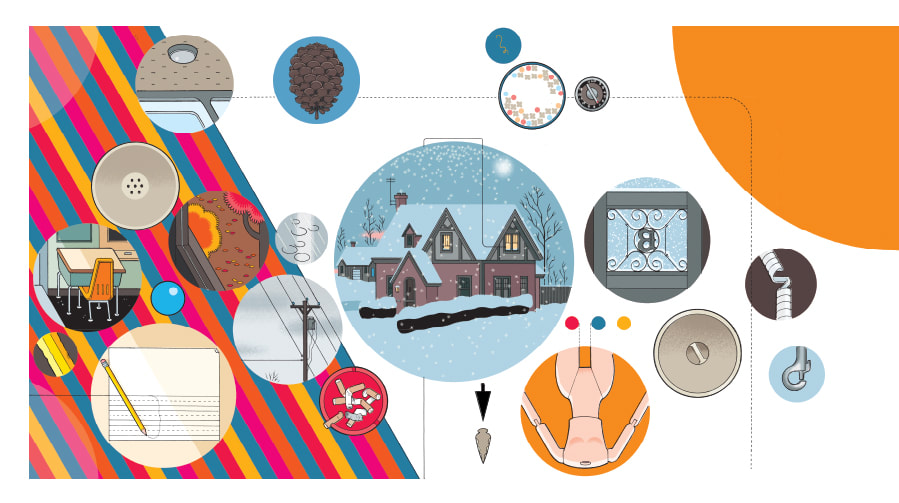
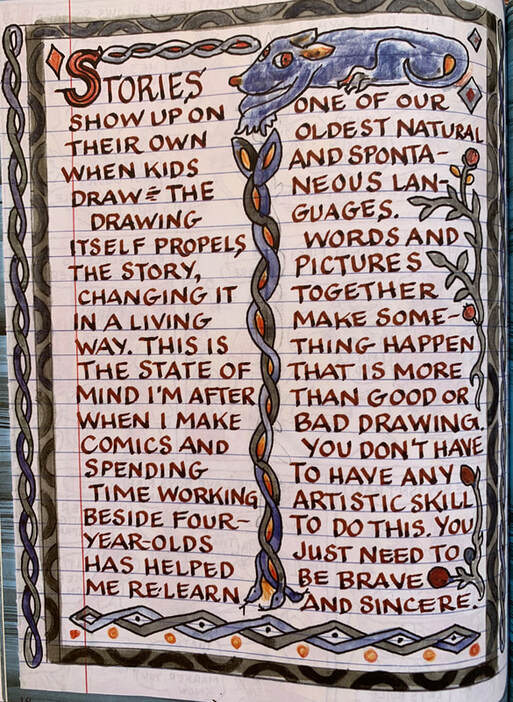
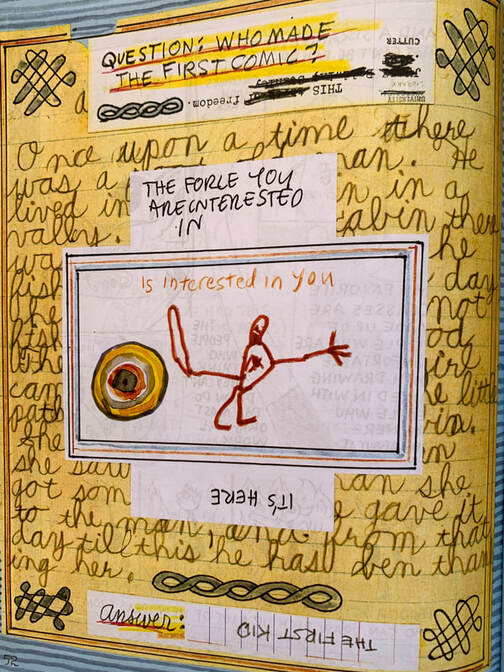
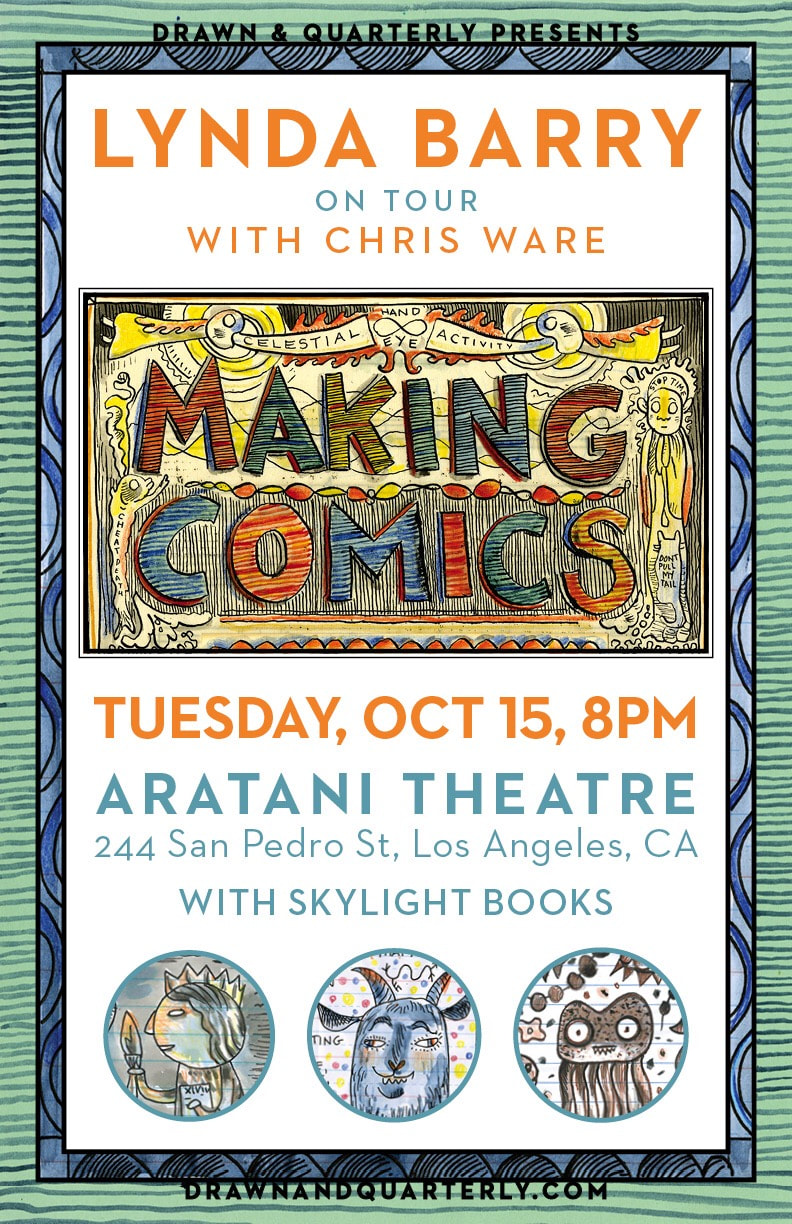

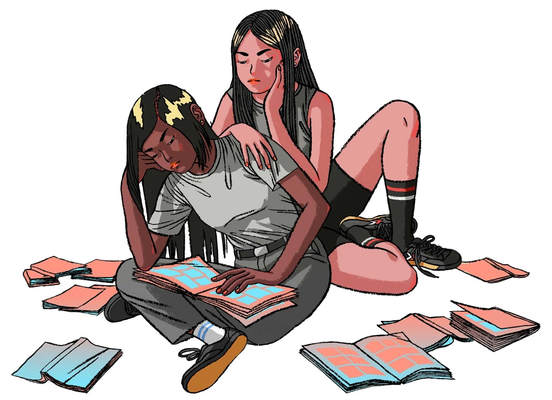
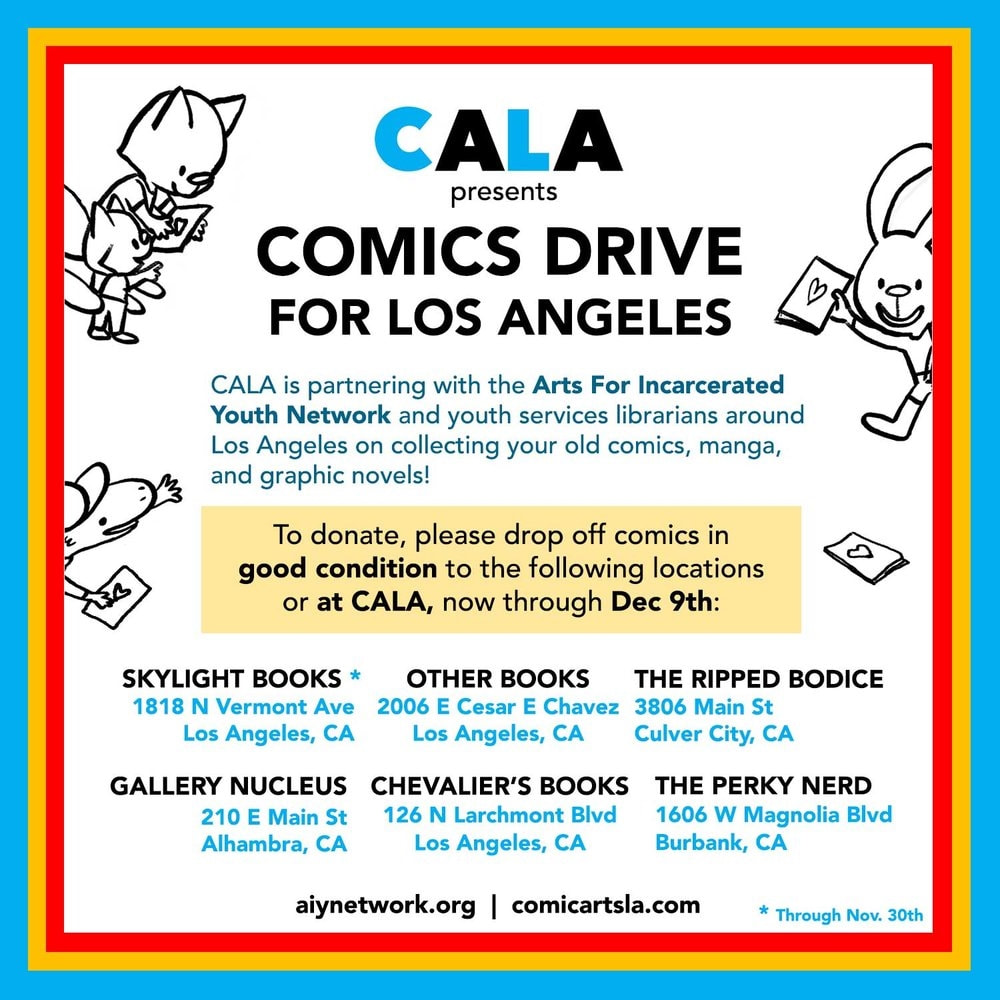
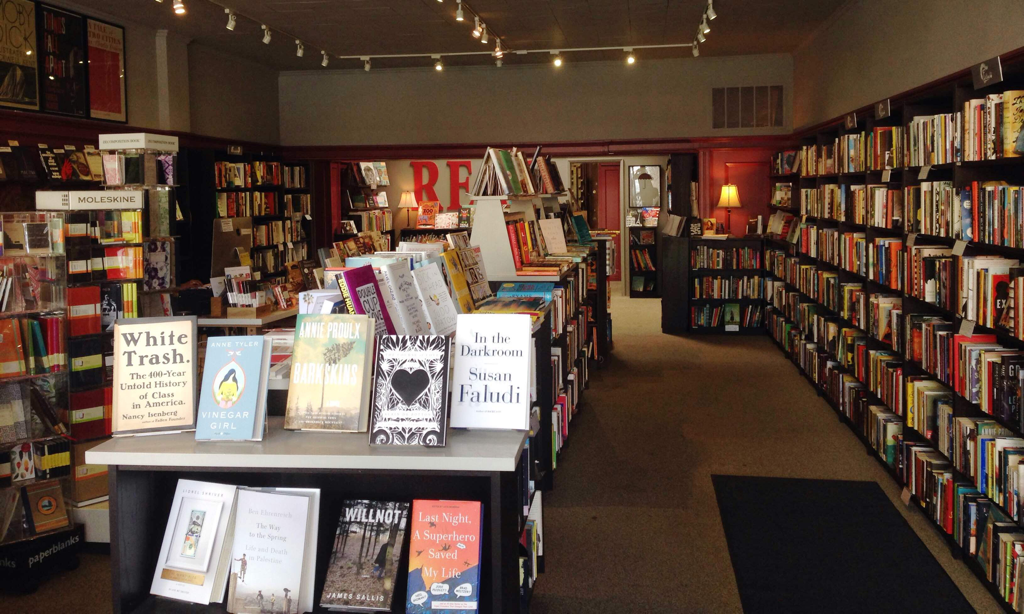
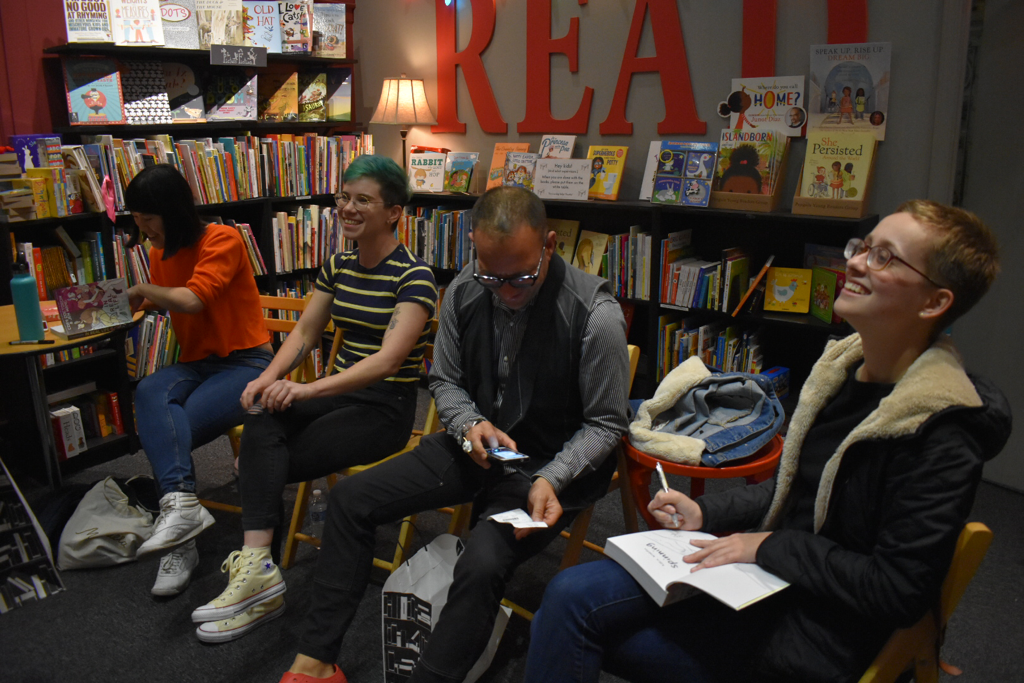
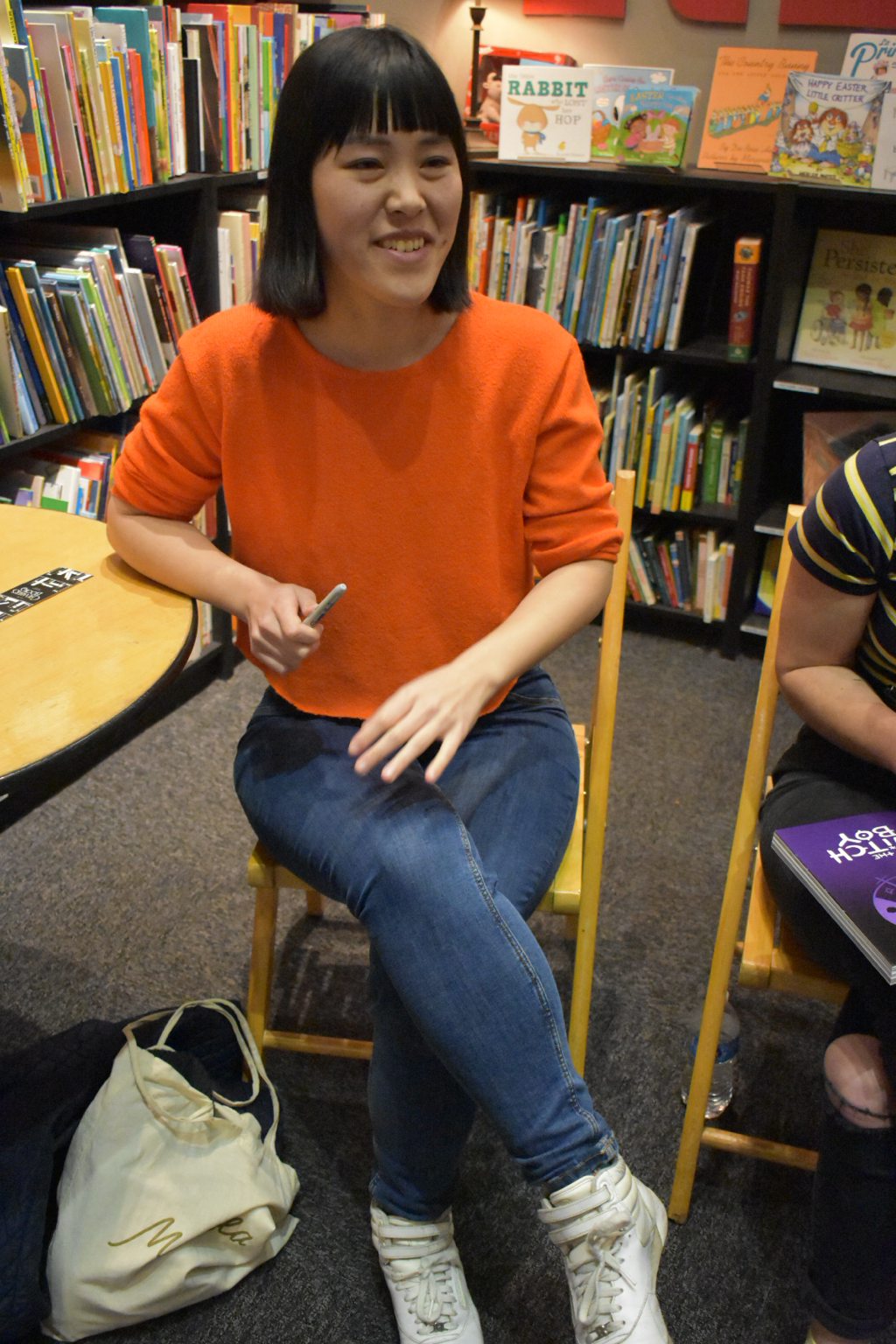
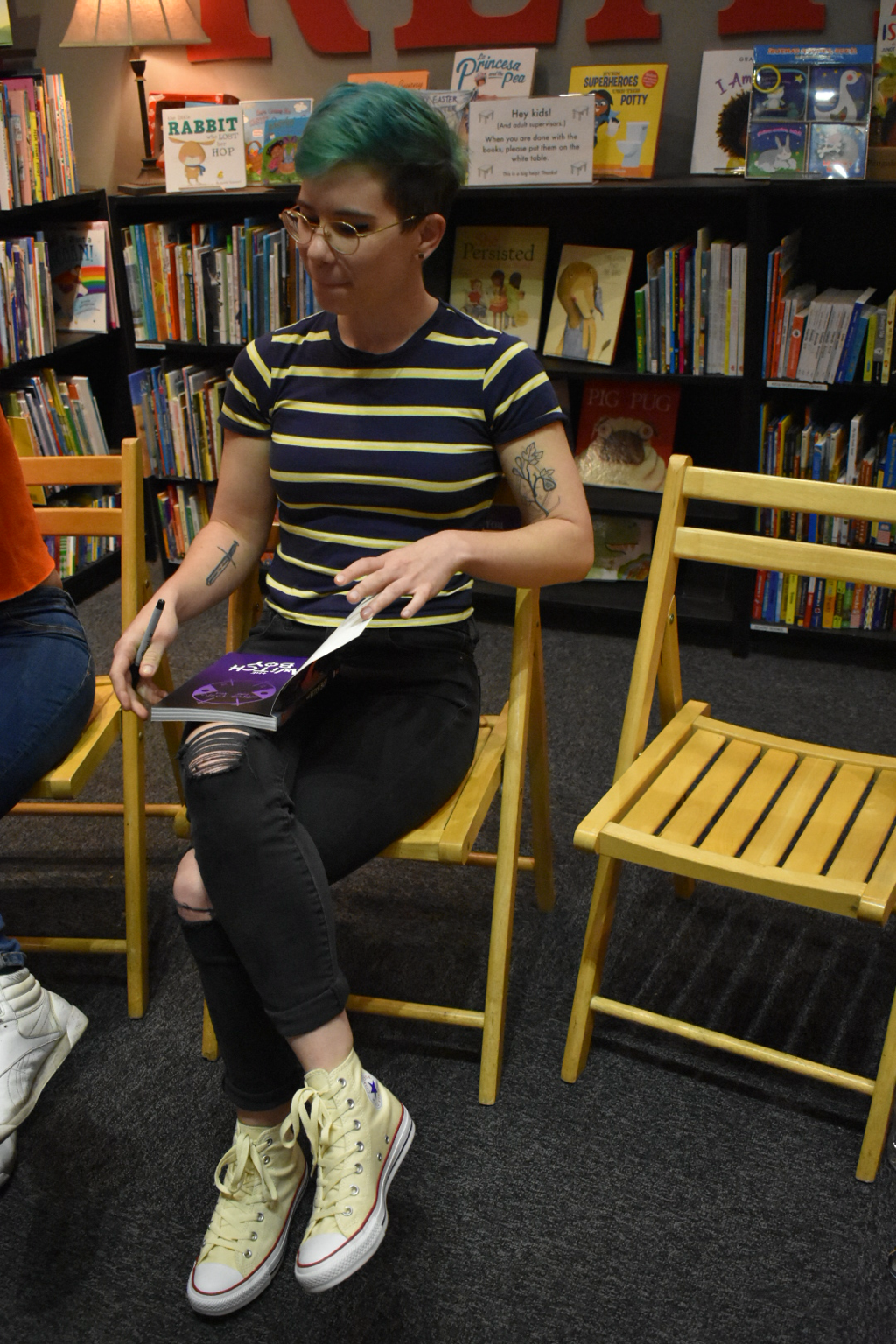
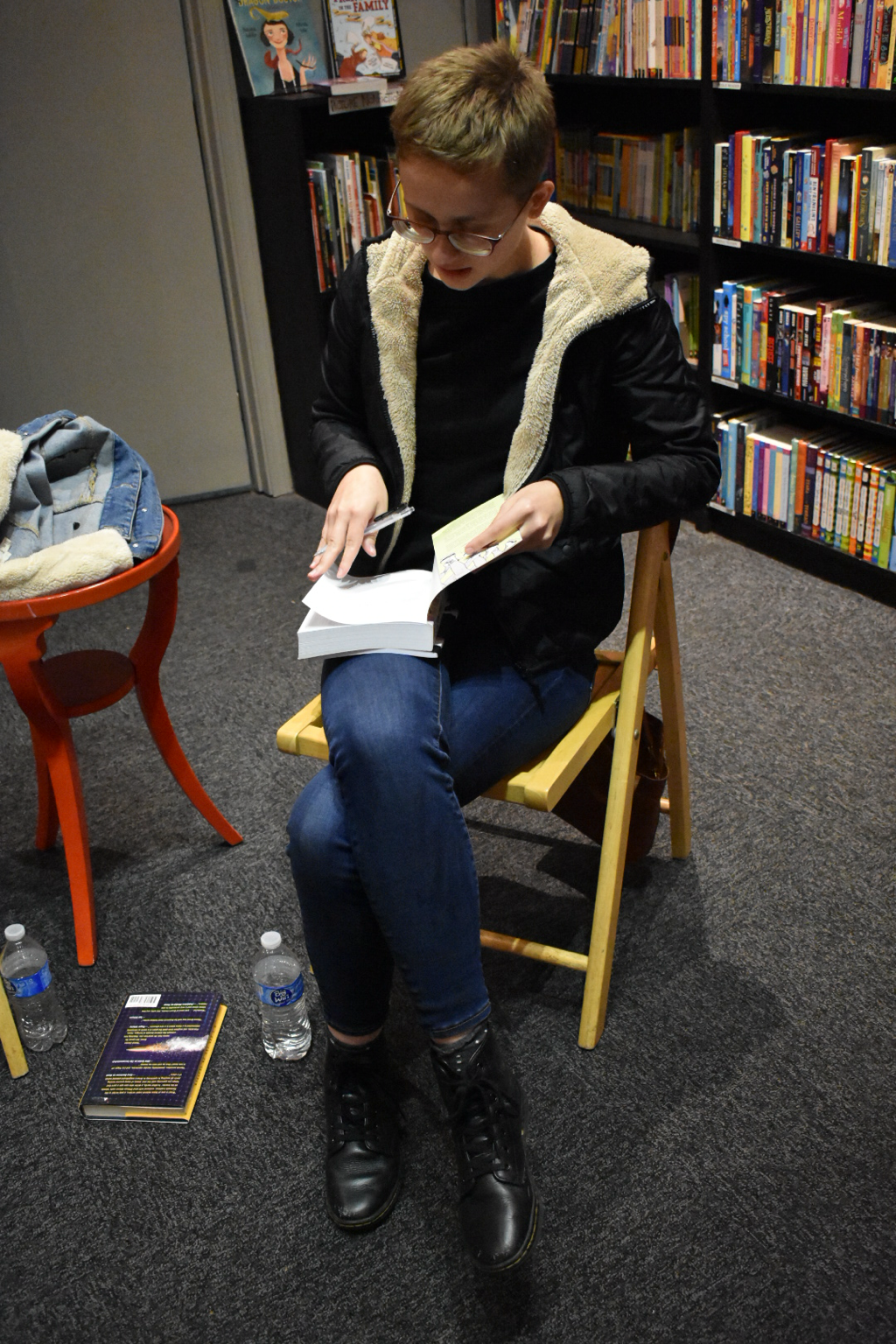

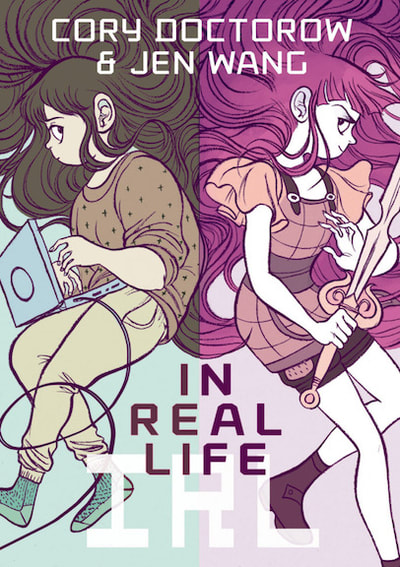
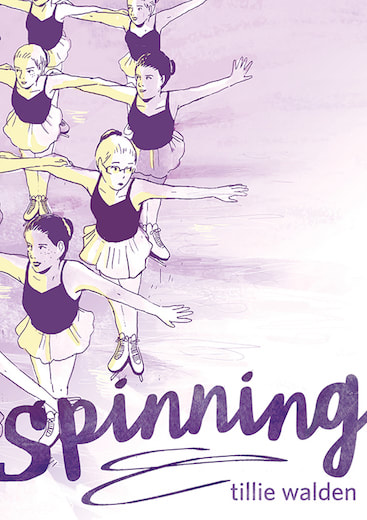
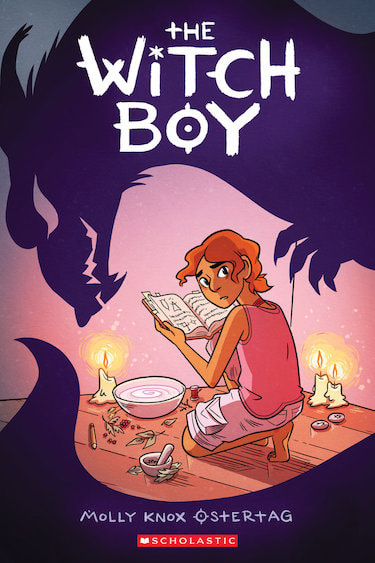
 RSS Feed
RSS Feed
